October 14 – November 29, 2019
Since the turn of this century, figuration and narrative painting have been dominating the discipline’s cutting-edge trends. Today influential art periodicals are overflowing with images, reviews and stories concerning figurative painters, and it is predominantly this type of art that is being marketed by leading commercial galleries and shown at museums around the world.
The 2019 Whitney Biennial bears testament to a strong preference for figurative and narrative works. However, it does appear that a counterrevolution featuring new tactics of abstraction is bubbling to the surface. Abstraction never took the ten-count.
Offering a plausible answer as to why there is a resurgence in abstract art—which had been declared “dead” forty years ago—Pepe Karmel stated, “I believe the most useful way to understand abstraction is not in terms of its formal evolution but in terms of thematic content…. Artists work by reviving and transforming archetypes from the unconscious of modern culture.”
CONSTRUCTED reinforces Karmel’s contention that today’s best abstract art isn’t a redo of 20th-century Modernism nor late-1980s Neo-Geo Conceptualism. Rather, this work is embedded with the personal experiences of these artists, speaks to this cultural moment, and draws inspiration from the broader history of abstract painting.
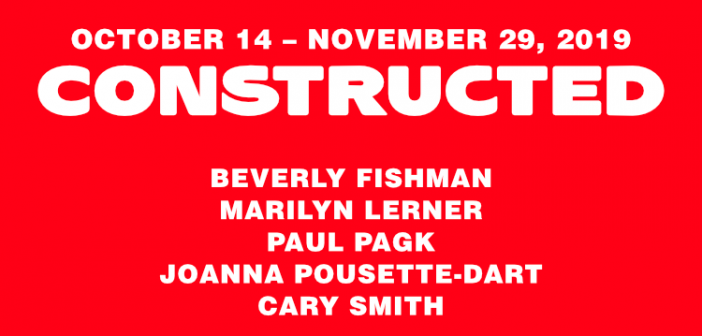
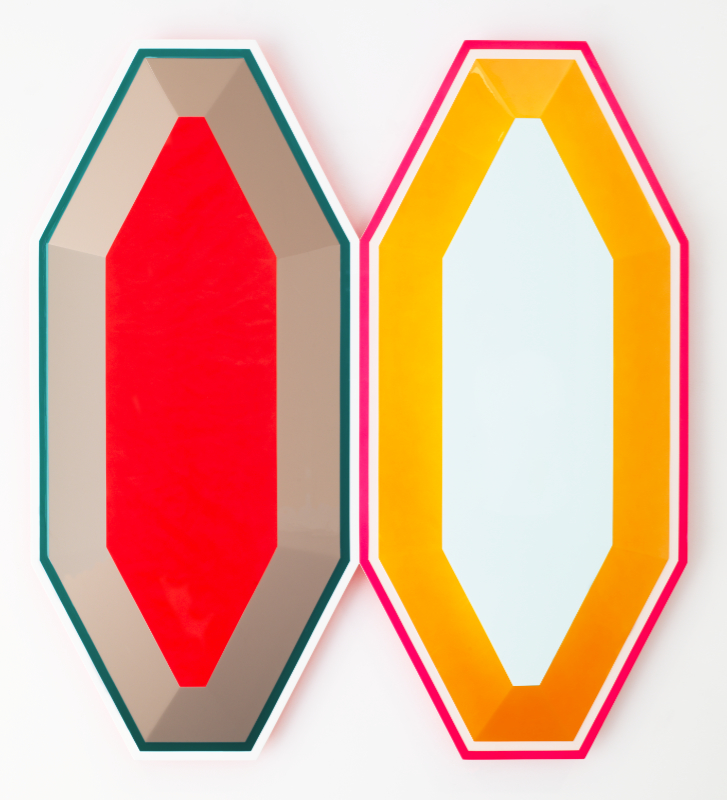
Beverly Fishman, Untitled (double pain), 2017, Urethane paint on wood, 38.5 x 38 x 2 inches, Courtesy of the artist and Miles McEnery Gallery, NYC
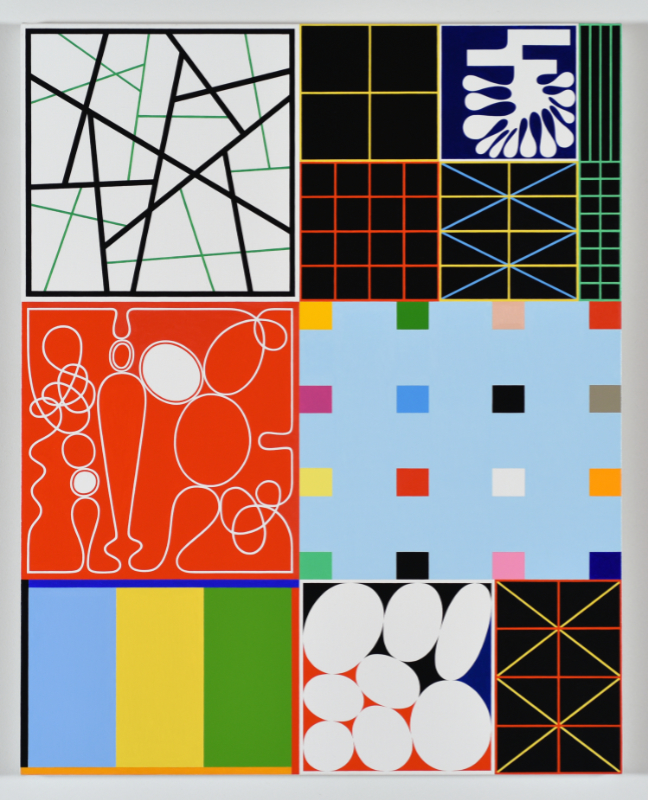
Cary Smith, Index Painting #12 (Treust Masor Soin), 2019, Oil on linen, 30 x 24 inches, Courtesy of the artist and Fredericks & Freiser NYC
Beverly Fishman, Marilyn Lerner, Paul Pagk, Joanna Pousette-Dart, and Cary Smith have developed singular ways of working that make their artwork distinctly recognizable, as well as visually gratifying and historically important. Clues are interwoven in the artwork of CONSTRUCTED, revealing a unique compatibility worthy of curatorial investigation. There are formal equivalents throughout the exhibition, including the choices in surface handling, related compositional formats, the inclusion of liner outlining, and various edge treatments. Although the quality and relatedness of the formal elements could have been reason enough to organize this exhibition, it is the richness of differences in content and methods of working underlying the formal structuring that make this show so compelling and full of surprises.
Since CAG is part of a major research and teaching institution, it is worth mentioning to our community that these are mid-career artists who already have earned significant professional success along the way. In CONSTRUCTED the clarity and confidence of their work is amply displayed. What’s rewarding is that their art’s progression continues forward and that their accomplishments are being evaluated in the context of abstract painting’s resurgence.
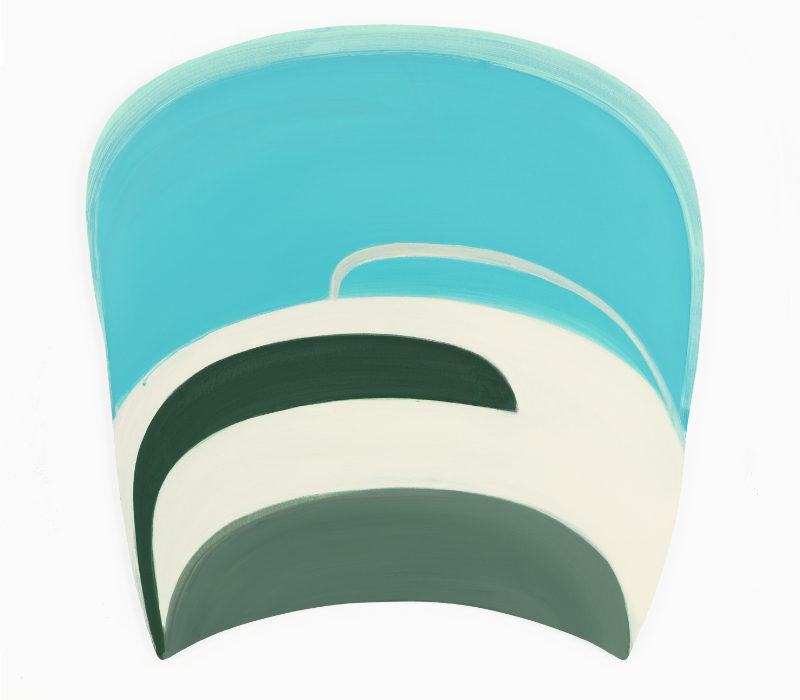
Joanna Pousette-Dart, Untitled, Green, 2019, Acrylic on canvas on shaped wood panels, 34 x 32.5 inches, Courtesy of the artist
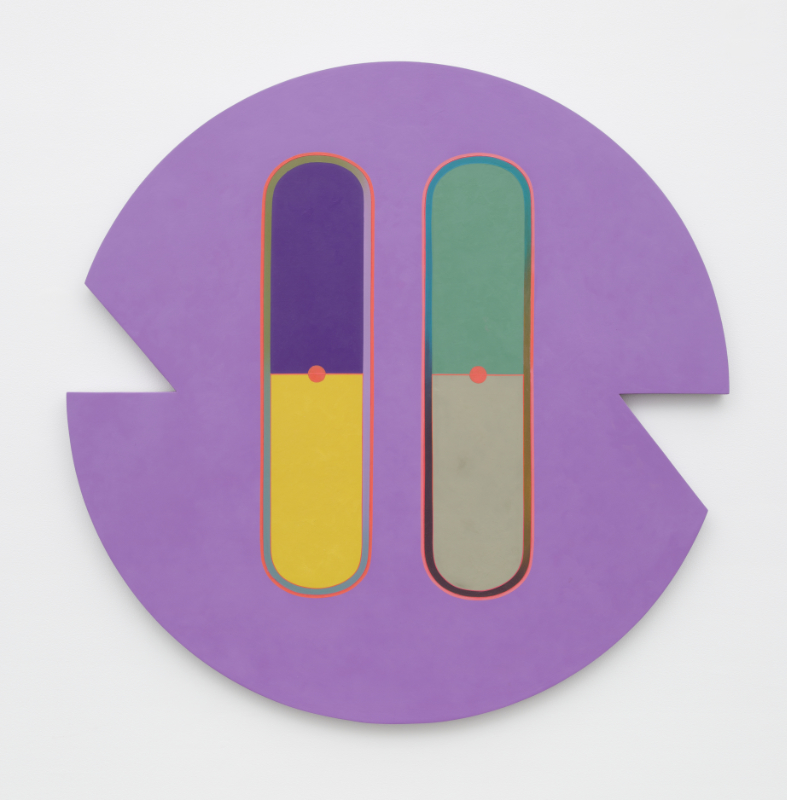
Marilyn Lerner, African Violet, 2018, Oil on wood, 36 inches diameter, Courtesy of the artist and Kate Werble Gallery
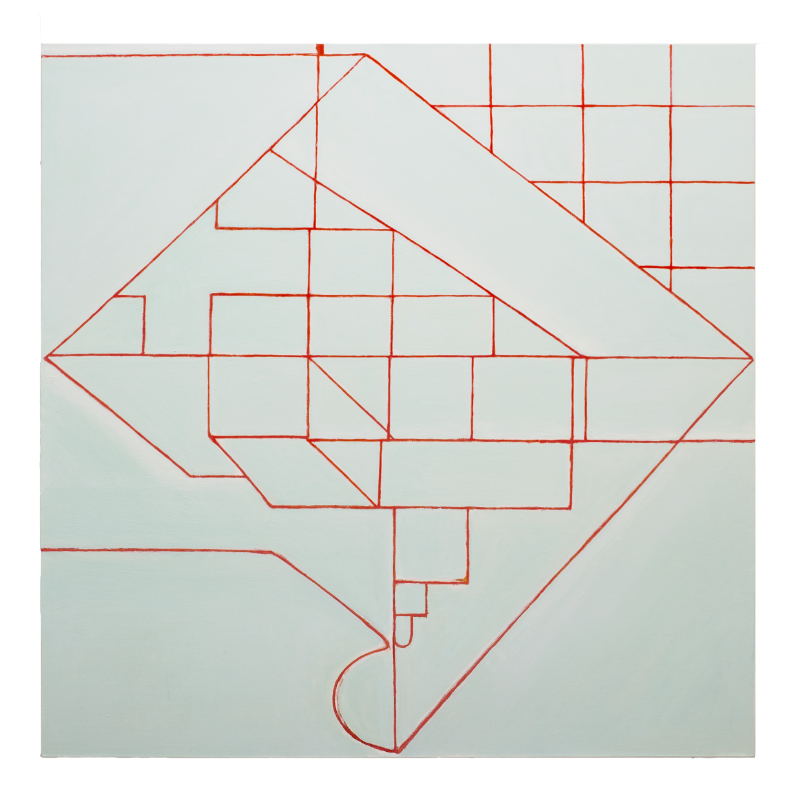
Paul Pagk, In The City, 2018, Oil on linen, 70 x 70 inches, Courtesy of the artist